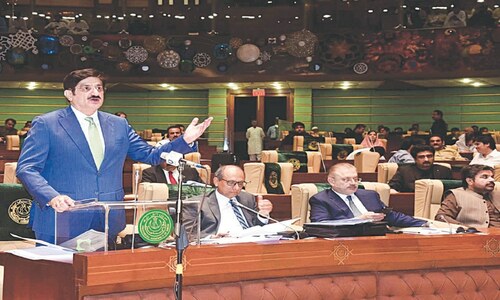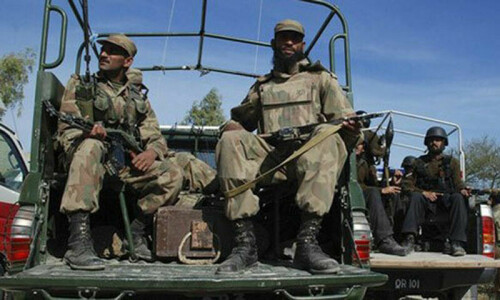KARACHI: Showing his reservations over lack of representation in the provincial and national assemblies, Pakistan Sikh Council patron-in-chief Sardar Ramesh Singh on Tuesday declared that the Sikh biradari (community) wouldn’t participate in the upcoming local body elections.
With a population of around 10,000 in Sindh, the Sikhs demand a right to dual vote to choose representatives from whichever community they deem fit without being limited to their own.
“Our reservation is with the way elections are held at the local level,” complained Mr Ramesh while speaking to Dawn. “Earlier, people used to decide who their elected councillor would be, but now the decision rests with political parties. The same happened recently during the local government elections in the cantonment areas of Karachi. Four councillors selected by the party leaders decided who their minority candidate should be.
“The minority leader selected by them doesn’t listen to grievances of smaller communities within the minorities.”
The minority community seeks right to dual vote; gets support from All Pakistan Hindu Panchayat
During the previous tenure of Prime Minister Nawaz Sharif from 1997 to 1999, the Parsis and Sikhs used to have one reserved seat in the National Assembly and one in each provincial assembly across Pakistan. This way, he added, both the communities used to accommodate their respective candidates who in turn listened to the grievances of the community at large and made efforts to solve them.
The bifurcation between seats for the Parsis, Sikhs, Baha’is and Buddhists is not there any more. What happened instead, he added, was that “Hindu and Christian communities usually get elected on reserved seats for minorities without any consideration given to the plight of smaller communities such as ours (Sikhs).”
A right to dual vote, he added, would not only make them choose candidates from their own community but a right to choose from a Muslim-majority area, too.
A spokesperson from the Parsi community refused to comment on the issue.
The All Pakistan Hindu Panchayat (APHP), however, supported their right to dual vote.
Speaking to Dawn, APHP vice president Murli Manohar said the Hindu community shared their reservations with the Sikhs. Foremost among them was the way the candidates were selected, he added.
“Besides, when we approach these candidates, they toe their party line and don’t seem interested in serving the community at large,” he said.
But the APHP wanted to keep itself away when it was about boycotting the local government elections, fearing “isolation”. He said boycotting the local government elections wouldn’t be wise at the time. “We need to look for reforms and solutions rather than take a stance that might put us in a difficult position,” he said. One of these reforms can come in the way of rectifying the situation in terms of proper distribution of seats. For instance, he said, three seats can be kept aside for Tharparkar that is a Hindu-majority area. A similar step can be taken while choosing a Sikh candidate from a pocket of the Sikh minority in Sindh, he said.
At the same time, bifurcation in reserved seats for the smaller communities and electing candidates, which were chosen by the people, would be a better way to quell the conflict, he added.
Published in Dawn September 23rd, 2015
On a mobile phone? Get the Dawn Mobile App: Apple Store | Google Play














































